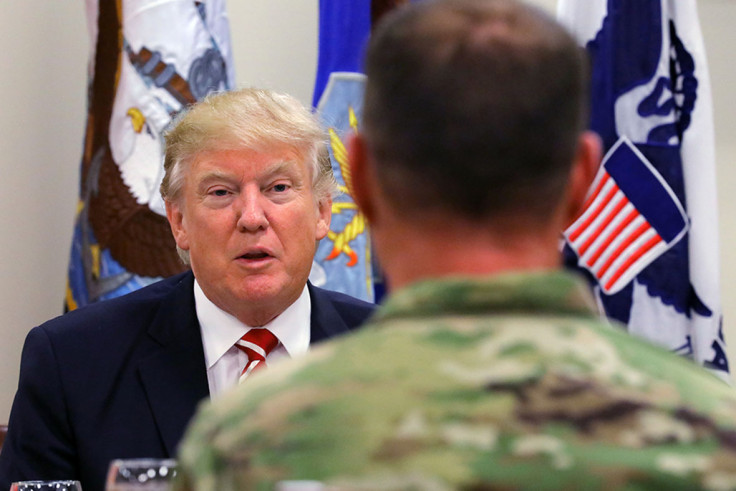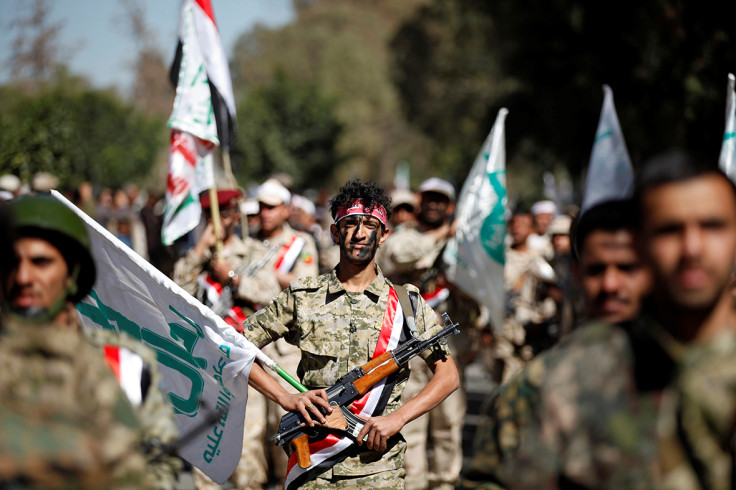George W Bush launched a war on terror – now Donald Trump has launched a war on truth
A disastrous US raid in Yemen and reckless outbursts on Iran damage American influence abroad.

It has been a chaotic and at times jaw-dropping 20 days in America since President Trump was inaugurated on a wet January day in Washington. Many commentators said Trump would not govern as he campaigned, but he has proven them wrong.
Mr. Trump has not mellowed his messages since he came into the Oval office nor has he sought to unite a divided America. The president has not toned down his harsh campaign rhetoric of banning Muslims entering the US or building that wall on the Mexican border – in fact arguably he has escalated things. Trump has announced a divisive policy after another, which has created a perfect storm in America – of protests, divisions and mistrust.
He spent his first weekend as president complaining about the size of the crowds at his inauguration. He claimed 1.5 million people had attended, despite clear evidence to the contrary. Trump's Press Secretary Sean Spicer falsely said that his inauguration was the "most-watched" ever – though proven not to be true – he still defended this falsehood.
In the days following Trump's inauguration, famously his adviser Kellyanne Conway spoke about "alternative facts", which are just lies, whatever she may claim otherwise. And, in the past few days Conway has cited the wholly fictitious, 'Bowling Green massacre' to defend Trump's travel ban on seven Muslim-majority countries.
But, while arguing about whether he had a bigger crowd at his inauguration than Obama may seem trivial. What is far more serious is how his administration is handling the truth when it comes to US foreign policy engagements – where judgements really matter.
Trump approved his first counter-terrorism operation in Yemen on 29 January it's alleged without having enough evidence or ground support. The Special Forces raid against an al-Qaeda target inside the war-torn county not only missed its target, but also left 30 civilians and one US Navy Seal dead.
Despite this botched operation and the many questions it has raised, Spicer has claimed this was a "successful operation", even as the growing evidence points in the opposite direction – and the Yemeni foreign minister has said today that his country has asked for a "reassessment" of the US Special Forces operations, which killed many of his citizens.
According to the International Crisis Group this deadly US raid may give al-Qaeda in Yemen the propaganda it needs to kill civilians. And this sort of military intervention stokes anti-American sentiments and is the perfect recruitment tools for jihadist groups.
Furthermore, Trump has also been ratcheting up tensions with Iran attacking the country on Twitter and he has over recent days spoken about his unhappiness about the nuclear deal. Last Wednesday National Security Adviser Michael Flynn said in an unexpected notice that, "we are officially putting Iran on notice", and just this morning the White House issued a new warning directed at Iran saying "there's a new president in town" – adding that Trump's administration would not sit by while Iran continues its military operations.

But it's not at all clear whether Trump can force Iran back to the negotiating table. These combative messages from the White House, and Trump's erratic Tweets about Iran or the travel ban are stoking trouble ahead.
In the past few days, the White House released a list of 78 terrorist attacks it alleges the media has failed to properly report on. This list of 'under-reported' terror attacks actually includes many attacks that have been reported on. This intervention came after Trump alleged the media had not covered terrorists attacks properly and, most dangerously, he has said if there's a terrorist attack in the US following the temporary halt of his travel ban, that Americans should blame the judge and courts.
But, what has been the most galling thing these past twenty days of Trump's presidency is his administration's disregard for the truth. Trump has advanced 'alternative facts' at the expense of the truth and he has lashed out at those who present evidence that he does not like. Most worryingly Trump has increasingly shown an appetite to use his authority to shutdown opposition and stifle freedom of expression. His public admiration of President Putin, and cosying up to dictators, does not bode well for the future.
In the 1980s we had the war on drugs. Post 9/11 George W. Bush ushered the war on terror, and with Trump we now have perhaps the most dangerous – the war on truth.
READ MORE: The hidden racism of the refugee crisis — why does nobody care when black Africans drown?
Trump it seems is seeking to destabilise the sinews that bind Americans to their democratic institutions. Now following the temporary halt of the travel ban by a judge in Seattle. Trump's actions of personally attacking the judge in the case in the most awful way, is not only undermining the independence of the US courts, but is also creating a constitutional crisis.
He is obsessed with his media image, and after all he is a media creation – a reality TV star,
This era of 'alternative facts' and this is war on truth itself is designed to cause chaos and confusion, and presumably through this uncertainty create the space to enact lousy policies. Trump's influential aide Steve Bannon has called the mainstream media the "opposition party", while Trump has said journalists are the "most dishonest people in the world".
But, according to Ezra Klein, Trump's real war his not with media, but with facts. Trump may rile at the mainstream media, but he is believed to consume an enormous amount of cable news, and he is obsessed with his media image, and after all he is a media creation – a reality TV star,
There is purpose behind Trump's attacks on facts and this war on truth. He wants to be seen as the sole authority on the truth, and he has not abounded spreading untruths, fake news that fuelled his campaign – as tools to govern. The battle in the coming months and years will be of who gets to decide what are truths and untruths. But, Trump's actions in the long run may have wider, more damaging consequences for American democracy itself.
Ismail Einashe is a freelance journalist, researcher and a contributing editor at Warscapes, a foreign affairs magazine. He tweets @IsmailEinashe
© Copyright IBTimes 2025. All rights reserved.






















